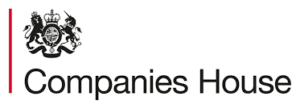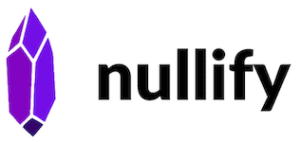Leading with Integrity: The Ethics and Compliance Manager Role

In 2016, Wells Fargo employees opened millions of unauthorized bank accounts to meet aggressive sales targets. In 2018, Facebook faced a firestorm over Cambridge Analytica’s data harvesting. In 2022, FTX’s implosion revealed virtually non-existent internal controls. Each scandal prompted the same question: where was compliance? The ethics and compliance Manager exists to prevent precisely these disasters. Yet the role remains widely misunderstood, often dismissed as corporate box-ticking until something goes spectacularly wrong. In reality, these professionals occupy one of the most politically fraught positions in any organisation, tasked with saying “no” to people whose bonuses depend on hearing “yes,” whilst somehow maintaining enough credibility to actually influence behaviour.
Daily Responsibilities
Strip away the corporate jargon, and the job comes down to building systems that stop people from doing stupid or illegal things, then convincing those same people the systems are necessary.
This starts with designing compliance programmes specific to an organisation’s risks. A pharmaceutical company needs protocols around clinical trial integrity and off-label marketing. A bank requires anti-money laundering controls and systems to detect market manipulation. A tech platform must navigate data privacy regulations across multiple jurisdictions. The compliance manager translates these requirements into actual policies, then creates monitoring systems to detect when people inevitably try to work around them.
Risk assessments consume significant time. Where could regulators find problems? Which business units operate in grey areas? These managers conduct audits, review contracts, and vet potential partners or acquisitions for red flags. When a business unit proposes entering a new market, ethics and compliance managers must assess what laws apply and whether the company can actually operate there without creating liability.
Investigations and Training
When someone files a whistleblower complaint or an audit uncovers irregularities, compliance managers must determine what happened. This means interviewing employees who may be lying, reconstructing events from incomplete records, and figuring out whether a problem is isolated or systemic. They document findings for regulators, recommend disciplinary action, and identify which controls failed.
Training is perpetual. Every new hire receives compliance onboarding. Sales teams get regular refreshers on anti-bribery laws because they keep testing boundaries. Finance staff need updates when reporting requirements change. The compliance manager must make this engaging enough that people actually retain it, despite knowing most attendees view it as time away from real work.
Between these formal responsibilities, they field constant questions. Can we hire this consultant? Is this gift appropriate? The ethics and compliance manager becomes the person everyone asks when they suspect something might be problematic but hope to hear it’s fine.
Required Skills and Background
Legal expertise helps enormously. Most ethics and compliance managers have law degrees or extensive experience in regulatory environments. Understanding how courts interpret statutes, how enforcement actions unfold, and what triggers regulatory scrutiny provides crucial context. Professional certifications like the Certified Compliance & Ethics Professional signal competence, though practical experience often matters more than credentials.
But legal knowledge alone fails. The best compliance managers possess what might be called “organizational fluency,” the ability to understand how businesses actually operate versus how policies say they should. They recognize when a rule is being ignored because it’s poorly designed versus when it’s being circumvented deliberately.
Communication skills prove essential because the audience constantly shifts. Explaining a Foreign Corrupt Practices Act violation to the board requires different language than training warehouse staff on data security. Writing a policy that lawyers approve but employees can actually understand is harder than it sounds. Delivering unwelcome news to a CEO without getting frozen out requires diplomatic skill.
Market Demand and Pay
Demand for these professionals has grown substantially, though unevenly across sectors. Financial services firms maintain large compliance departments because regulators demand it and penalties for failures run into billions. Pharmaceutical companies face similar pressure. Technology firms have expanded compliance functions rapidly as data privacy regulation has tightened globally.
The average Ethics and Compliance Manager in the United States earns approximately $142,000, though figures vary considerably by industry and seniority. Directors of compliance at major financial institutions can earn multiples of that. Smaller companies may combine compliance with other functions and pay accordingly less.
The growth stems from several factors beyond headline scandals. Regulatory complexity has increased. The European Union’s General Data Protection Regulation alone created enormous compliance workload for any company touching European customer data. Enforcement has become more aggressive, with authorities increasingly pursuing individual executives rather than simply fining corporations.
The Core Challenge
Here’s what makes the role difficult: ethics and compliance managers succeed when nothing happens. When no scandals erupt, no investigations occur, no whistleblowers come forward. This is a terrible way to demonstrate value.
Business units generating revenue can point to deals closed, products shipped, customers acquired. Compliance points to disasters that didn’t occur, an inherently unpersuasive argument to executives looking for places to cut costs. The function exists in a permanent state of justifying itself.
Worse, compliance managers must regularly deliver messages that people don’t want to hear. “No, you can’t structure the deal that way.” “That marketing claim will get us in trouble.” These interventions can kill deals, delay launches, or force uncomfortable conversations with authorities.
Navigating Grey Areas
The truly difficult situations involve grey areas where reasonable people disagree about what the law requires. Regulators haven’t weighed in, the statute is ambiguous, competitors seem to be pushing boundaries. Does the compliance manager insist on the conservative interpretation and risk being labelled obstructionist? Or approve something that might look questionable in retrospect?
Political acumen becomes survival skill. Push too hard and you lose credibility, getting excluded from decisions until it’s too late to influence them. Push too softly and you fail at the fundamental job, leaving the organization exposed.
Then there’s the culture problem. Policies and training accomplish little if the actual culture tolerates or rewards corner-cutting. A compliance manager can write the most comprehensive code of conduct in existence, but if employees observe senior leadership ignoring it with impunity, the document is meaningless.
Why People Choose This Work
For a certain type of professional, the ethics and compliance role offers genuine appeal. There’s satisfaction in building systems that work, in preventing problems before they metastasize. Some practitioners enjoy the intellectual challenge of navigating complex regulations and designing elegant solutions to thorny compliance problems.
Others are drawn to the investigative aspects, the puzzle-solving dimension of determining what actually happened when things go wrong. The work suits people who find meaning in prevention rather than glory, who can tolerate being unpopular, and who possess the temperament to keep pushing even when it feels futile.





